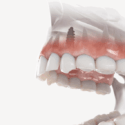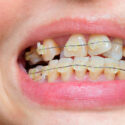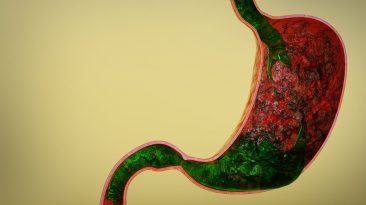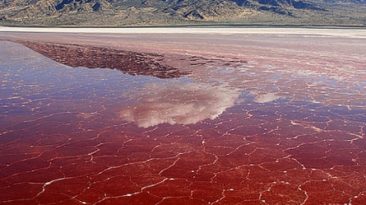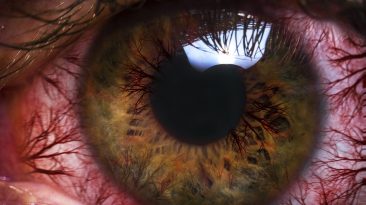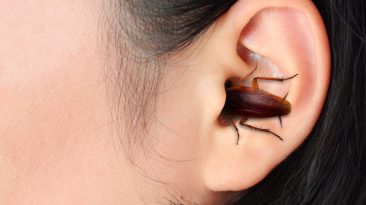This is a cyborg baby. Nope, I am not joking. In December 2020, for the first time in human history, researchers reported finding microplastic particles in several healthy women’s placentas.
This shows what can happen as we eat and inhale plastic every day. If we don’t change our habit of relying so heavily on plastic, our next generations will no longer be made only of human cells. Instead, they’ll be a mixture of biological and inorganic entities, like cyborgs.
But we don’t eat plastic, so how’s it getting into our bodies? How does your body react to plastic? Can you get the plastic out of your body?
Plastic is a polymer mainly made of carbon. Polymers are long chains of natural and synthetic molecules. They can be found in silicones, and even in DNA. A common polymer is cellulose, which makes up the cell walls of plants.
Polymers have been used by humans for a very long time. The Olmecs, the earliest known major Mesoamerican civilization, used balls made of rubber, a natural polymer, to play games. But it wasn’t until 1907 that the big breakthrough occurred, and the first synthetic plastic was made from fossil fuels.
Since then, we’ve produced millions of tons of plastic. And we have been dumping it in our environment, everywhere.
So, what would happen if you ate just a little bit of plastic?
Well, eating a small amount of plastic won’t kill you. It would probably leave your body in a day or two. The problem comes when you’re constantly consuming plastic. And we are.
A new study in the Environmental Science and Technology journal states that we may be consuming more than 74,000 microplastic particles a year. Other estimates have Americans taking in between 203 and 312 bits of plastic every day. And those numbers come from taking into account only 15% of our diet. Mmm … delish! What are the consequences of ingesting this quantity of plastic?
Plastic can expose you to dangerous chemicals that can lead to premature births, asthma, cancer, miscarriage, premature breast development, abnormal male sexual development, and male infertility. In the last 50 years, men’s sperm counts have declined, and some evidence links this to our increased use of plastics. So, where will that take us? Great.
The type of plastic matters too. If it’s microplastic, you won’t feel it as you eat it. But you could also eat rigid plastic. That could cut or damage your throat or stomach.
If you’re wondering who is ingesting plastic without realizing it, the answer is, you are. Contamination is everywhere, in the foods you’re eating, the liquids you’re drinking, and the air you’re breathing. There’s no way to avoid it. And plastic is affecting our health.
For example, phthalates, toxic chemicals found in plastic packaging, can cause zinc deficiency, problems with the absorption of vitamins A and B-6, indigestion, depression, heart disease, cancer, diabetes, and accelerated aging. Phthalates can damage our organs, and disrupt our hormones, like thyroid and testosterone.
And although we need more studies about the effects of plastic on the human body, what we know right now is pretty scary. Let’s look at what ingesting plastic is doing to animals in the seas and on land. They’re … dying. And, I don’t think it’s going to be any different for us.
So, how can we get rid of the plastic we already have in our bodies? Well, we can’t. Scientists say that the only way to keep plastics out of the body is to get rid of the plastics. And some researchers say that we can’t cure some diseases until we deal with the plastics issue.
So, what can we do? The smartest thing you can do is to drastically reduce the use of plastic in your daily life. When you crave a coffee, want a sip of something, or buy food and groceries, choose reusable items instead of single-use ones. There are many easy, little things we can do every day that could bring a great change, and help us.
Sources
- “Microplastics revealed in the placentas of unborn babies”. 2020. The Guardian.
- “You eat thousands of bits of plastic every year”. 2021. Environment.
- “Americans Accidentally Eat 200 Tiny Pieces Of Towels, Beads, And Plastic Foams Every Day. Here’s How Worried You Should Be.”. 2021. Business Insider.
- “A brief history of plastics, natural and synthetic”. Laurence, Knight. 2014. BBC News.
- “What Happens To Your Body When You Accidentally Eat Plastic?”. Michelle Hahn. 2016. Spoon University.
- “7 Ways Plastics Damage The Body”. functionalmedicineuniversity.com.
- ” Adverse Health Effects Of Plastics | Ecology Center “. 2021. ecologycenter.org.







